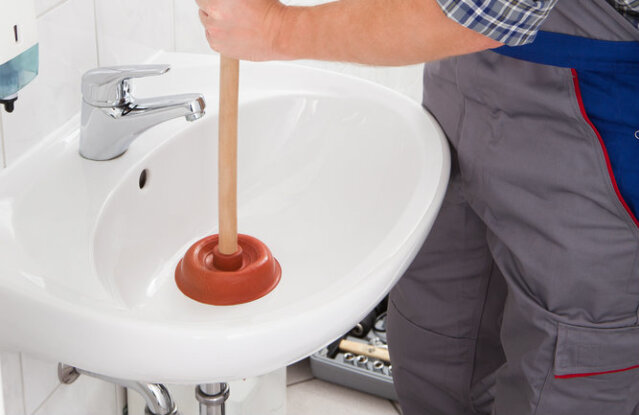Glug-Glug Goes The Drain: What This Sound Means

GURGLING DRAIN
Water generally runs from the faucet at a speed of around one to two gallons per minute without much thought from you. The silence of this simple luxury is taken for granted until the gurgling drain begins.
Gas bubbles released from water prompt gurgling. Air trapped in a clog moves into the water sitting on top of the blockage and releases that distinctive glug-glug. The silence broken.
What does this mean? A gurgling drain indicates an issue to be addressed.
BLOCKED PLUMBING = GURGLING DRAIN
A blocked plumbing drain results in slow drainage and gurgling in all fixtures serving that drain. A sink plunger offers a first step in clearing this issue. If this effort fails, chemical drain agents are not recommended. These proclaimed clog-busters may remove the blockage, but pipe damage is a side effect.
BLOCKED SEWER PIPING
Sewer piping that routes water and wastes to the external system may become blocked. Typically, drains still appear to work correctly. However, surges in use such as laundry day or additional houseguests reveal an issue.
With increased water loads in the pipes, water cannot slowly seep past the clog as with smaller burdens. The gurgling drain symptoms increase during these times. In these cases, the line requires snaking or jetting to remove the blockage.
BLOCKED OR INADEQUATE DRAIN-VENT SYSTEM
If the gurgling sound occurs in a nearby sink or shower after a toilet is flushed or tub drains, the issue may lie with the drain-vent system. These vents remove harmful sewer gas from the pipes and route it outside the home.
Causes of the inadequacy of this system include the lack of vent connections, issues with vacuum breakers at drains, plumbing fixtures too far from the vertical plumbing stack, too small vent diameter, lines not vented outside and clogs in plumbing vents.
Correcting vent issues through diagnosis and repair stops the glug-glug. Also, vents blocked by insect nests, bird nests, frost or snow, or even a frog, require attention.
OVER-FULL SEPTIC TANK
Over-full septic tanks do not permit adequate flow of water and materials from the tank into the drainfield. This fullness, in essence, blocks sewer lines. The fix for this issue is simple. Perform regular, routine tank cleanings.
The primary sources of the telltale glug-glug tend to be a partial plug in the sewer line or an over-full septic tank. In any case, gurgling should be addressed promptly to avoid further issues such as sewer gas backup, drain backup or more severe ramifications.
Tim Frank Septic Tank Cleaning can assist you with any of these issues. We offer drain and sewer cleaning or jetting and tank pumping. Call 440-636-5111.
